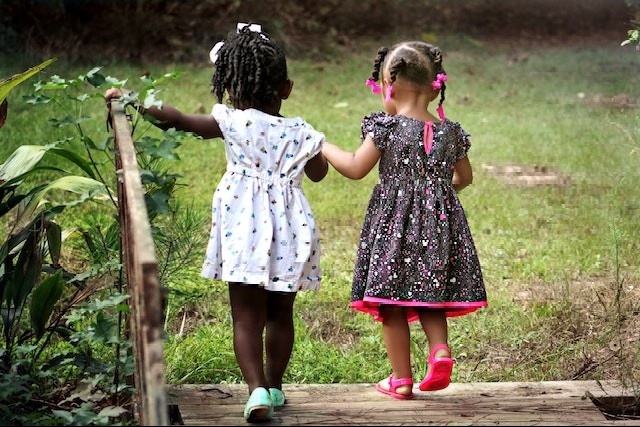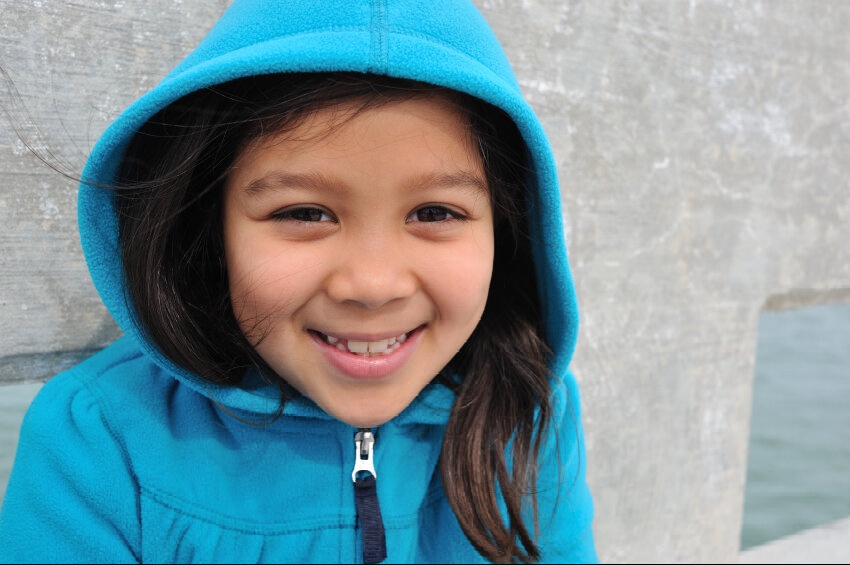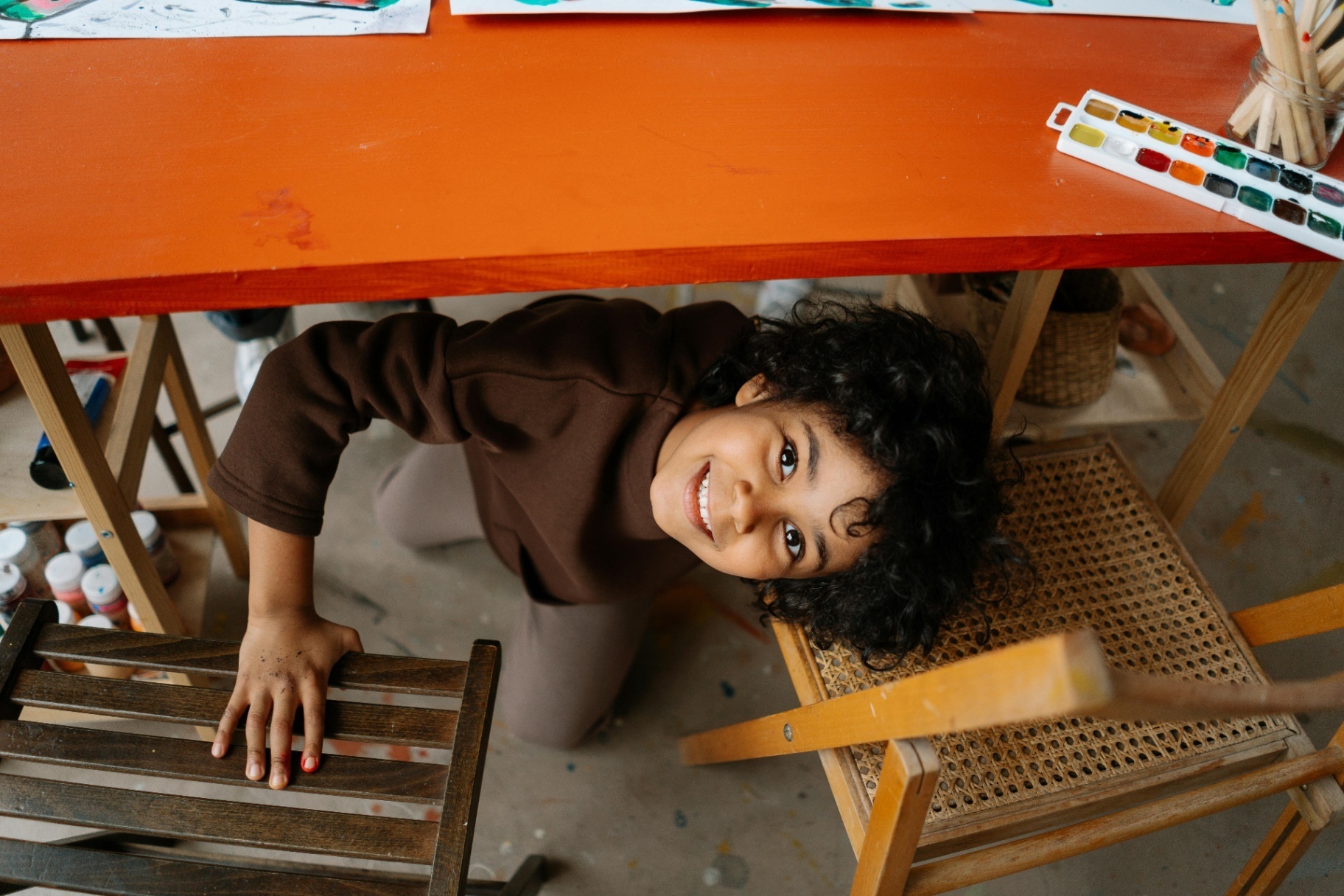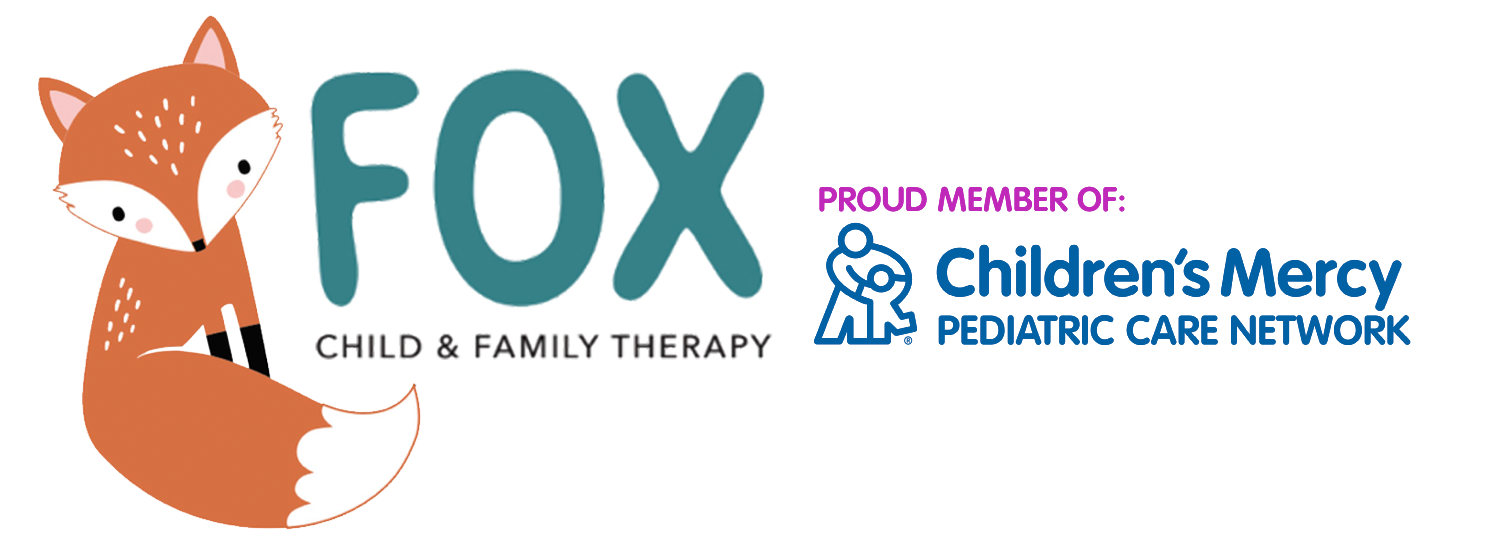Children Are Increasingly Vulnerable To Mental Health Issues
Although it can be an isolating experience for parents when their children encounter mental health and developmental issues, they are more common than we think. In 2016, the Centers for Disease Control and Prevention (CDC) reported that “1 in 6 U.S. children aged 2–8 years had a diagnosed mental, behavioral, or developmental disorder.” [1] Given these statistics, it is not surprising that a recent Pew Research Center survey of parents with minor children reported that “mental health tops the list of worries that U.S. parents express about their kids’ well-being.” [2]
Our Children Face New Challenges
 Kids today have been exposed to challenges we never had to deal with growing up, like the emotional fallout of the COVID-19 pandemic and the perils of social media. With more time spent socializing online, children have become increasingly isolated and lonely. [3] In particular, the self-comparison children engage in when consuming social media can trigger anxiety and depression.
Kids today have been exposed to challenges we never had to deal with growing up, like the emotional fallout of the COVID-19 pandemic and the perils of social media. With more time spent socializing online, children have become increasingly isolated and lonely. [3] In particular, the self-comparison children engage in when consuming social media can trigger anxiety and depression.
As parents, we often feel guilty when our child is struggling. However, it’s not always easy to understand and respond to our child’s behavior, especially when they can’t express their feelings in words. We might feel like we’re failing our children when we don’t have all the answers, but it’s okay to seek help and support when needed.
The good news is that blending play therapy with Cognitive Behavioral Therapy (CBT) can be an effective way for children to recognize what they’re feeling. Because play is a natural form of communication for children, incorporating it into therapy allows them to express themselves more organically.
Play Therapy Can Help Your Child Thrive
We understand that, as parents, you want to ensure you are setting your kids up for success. When a child’s emotional or behavioral challenges affect them socially or academically, their self-esteem can be negatively impacted. Left unaddressed, they risk entering adolescence and young adulthood lacking the confidence and social skills they need to thrive.
Each of the child behavior specialists at Fox Child Therapy is well qualified to partner with families and guide them to solutions customized for your kid. By utilizing play therapy, children will be engaged in age-appropriate ways to express their feelings, regulate emotions, relate to friends and family, manage anxiety, and develop executive functioning and social skills.
What To Expect In Sessions
As their parent, you are the utmost expert on your child. Because your relationship with them is key to your child’s growth and healing, we take a collaborative approach in therapy. Your child’s counselor will not only keep you informed every step of the way but may also invite you to participate in sessions as a therapeutic presence for your child. Our philosophy is to equip you with the knowledge you need to help your child long after therapy is completed.
In parent-child psychotherapy, we can navigate challenging diagnoses like autism, ADHD, grief, trauma, or anxiety. Once we identify the underlying reasons contributing to your child’s behavioral challenges, your counselor will help you become more attuned to each other in a play-based environment, thereby reducing conflict and nurturing a more positive relationship.
Play Therapy Helps Your Child Communicate More Comfortably
 Child-centered play therapy uses toys—such as doll houses, puppets, blocks, sand trays, and art supplies—as the medium for your child to tell us what is happening in their world. For example, your child can use the sand tray to create miniature worlds where they can role-play and learn how to manage overwhelming feelings. In this safe space, the therapist can help guide your child to a place of resolution while also helping parents develop effective strategies to reduce unwanted behaviors at home.
Child-centered play therapy uses toys—such as doll houses, puppets, blocks, sand trays, and art supplies—as the medium for your child to tell us what is happening in their world. For example, your child can use the sand tray to create miniature worlds where they can role-play and learn how to manage overwhelming feelings. In this safe space, the therapist can help guide your child to a place of resolution while also helping parents develop effective strategies to reduce unwanted behaviors at home.
Play-based Cognitive Behavioral Therapy (CBT) can help your child identify and label what thoughts and feelings fuel their behaviors. Once they understand what they’re feeling, we can introduce concrete strategies and coping skills that target the negative thought patterns causing distress. With play-based Eye Movement Desensitization Reprocessing (EMDR) for trauma, we can help your child process traumatic experiences such as a divorce, the loss of a loved one, or abuse.
Our skilled therapists are trained to give you the tools you need to help your child succeed. Play therapy is a fun and engaging way to help them work through their challenges and develop new skills and narratives to maintain healthier relationships and function better at home and school.
But You May Have Some Concerns About Therapy For Your Child…
What is play therapy for children and why is it helpful?
Play therapy is often misconstrued as just simple play. In reality, child-centered play therapy is a carefully designed modality that supports your child’s social and emotional development. Our play therapists employ strategic play techniques that effectively assess and comprehend your child’s developmental challenges. Once these challenges are better understood, play therapy is utilized to enhance and improve your child’s ability to process emotions, manage their mood, and communicate with others.
How long will my child need to see a therapist?
Because every child we work with has unique needs and goals, the length of therapy will vary. Some factors we consider when thinking about therapy length are how long the symptoms have been present, family dynamics, and how quickly your child responds to interventions. Your child’s therapist will provide you with an estimated length of therapy once they complete the initial assessment.
No one in our family has ever tried therapy and we’re unsure if it will help our child.
Understandably, you may have reservations if you are unfamiliar with therapy. With our kid-friendly approach to child and family counseling, we incorporate play therapy to ensure we understand the root cause of your child’s challenges while keeping them feeling safe and comfortable. This approach is a refreshing and new take on what is going wrong and what you can do differently moving forward. And if you ever have reservations about therapy for children once it’s underway, we encourage you to bring them up with your therapist.
Working Together, Your Child Can Thrive
Allow us to partner with you to provide the support your child needs. To get started with play therapy for your child, email [email protected], use the contact form, or call 913-229-5691 to schedule an appointment.
[1] https://www.cdc.gov/childrensmentalhealth/data.html
[2] https://www.pewresearch.org/fact-tank/2023/03/02/mental-health-and-the-pandemic-what-u-s-surveys-have-found/
[3] https://www.health.harvard.edu/blog/is-a-steady-diet-of-social-media-unhealthy-2018122115600



 Kids today have been exposed to challenges we never had to deal with growing up, like the emotional fallout of the COVID-19 pandemic and the perils of social media. With more time spent socializing online, children have become increasingly isolated and lonely. [3] In particular, the self-comparison children engage in when consuming social media can trigger anxiety and depression.
Kids today have been exposed to challenges we never had to deal with growing up, like the emotional fallout of the COVID-19 pandemic and the perils of social media. With more time spent socializing online, children have become increasingly isolated and lonely. [3] In particular, the self-comparison children engage in when consuming social media can trigger anxiety and depression. Child-centered play therapy uses toys—such as doll houses, puppets, blocks, sand trays, and art supplies—as the medium for your child to tell us what is happening in their world. For example, your child can use the sand tray to create miniature worlds where they can role-play and learn how to manage overwhelming feelings. In this safe space, the therapist can help guide your child to a place of resolution while also helping parents develop effective strategies to reduce unwanted behaviors at home.
Child-centered play therapy uses toys—such as doll houses, puppets, blocks, sand trays, and art supplies—as the medium for your child to tell us what is happening in their world. For example, your child can use the sand tray to create miniature worlds where they can role-play and learn how to manage overwhelming feelings. In this safe space, the therapist can help guide your child to a place of resolution while also helping parents develop effective strategies to reduce unwanted behaviors at home.

